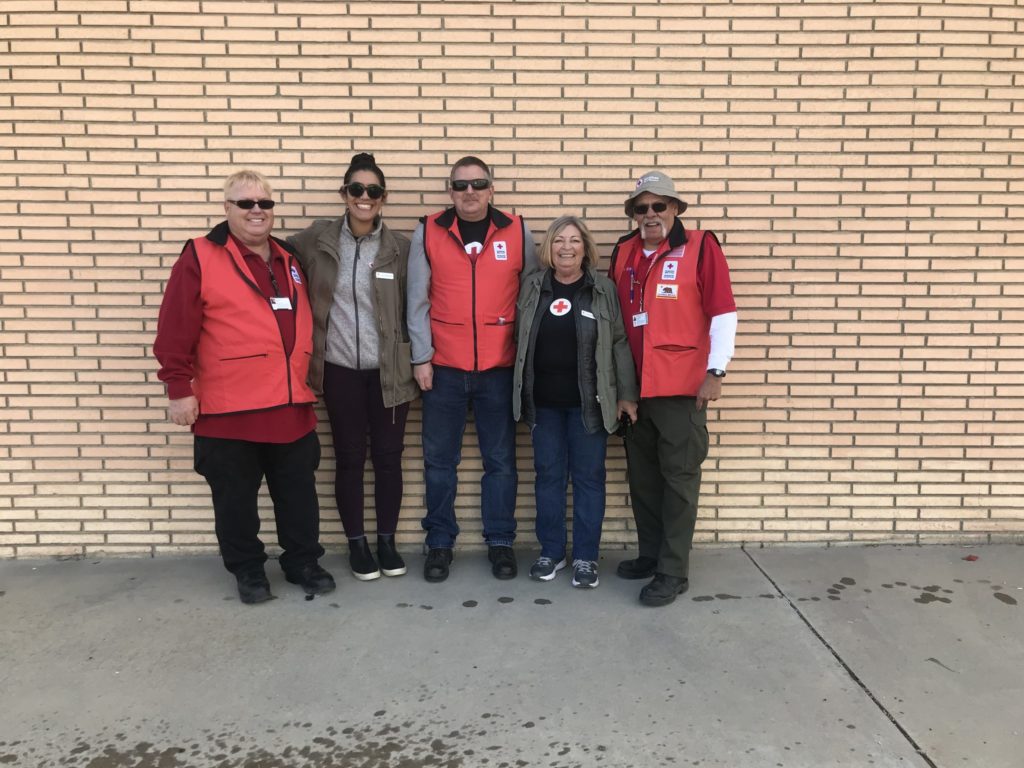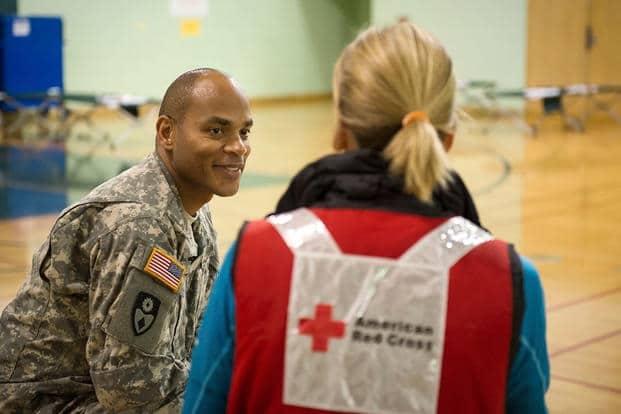This blog post was originally published on the Red Cross Central California blog.

During this pandemic, military families are really feeling the sting. A lot of service members and their families are in an unfortunate holding pattern. Families that were scheduled to be reunited after long periods of separation are having to wait even longer to be together again. Others are waiting to hear when they will get their next assignment. That is why Red Cross Service to the Armed Forces volunteers like JoAnne Barsenas are committed to providing help to our military community. Through the Red Cross Hero Care Network, we offer 24/7 emergency communications for service members and veterans. JoAnne is a shining example of how volunteers are giving back to our military, at a time when they need it the most.
The voice on the line was barely audible when JoAnne picked up the phone. In between sobs, the caller identified herself as the wife of a recently deployed sailor. She had only been married for a few months. She was all alone for the first time in her life. She was barely nineteen. She was pregnant. And she wanted her husband to come home.
JoAnne knew two things as she took a deep breath and moved to a comfortable chair. The first was that this young woman’s husband was not coming home. The second was that it would take some time to calm her and reassure her that everything would work out.
“I was on the phone with her for almost three hours,” recalls JoAnne. “She was scared and alone, away from her family and friends. But we did eventually work everything out. I set her up with a Navy Family Ombudsman, who can be a key resource, particularly during deployments. I was really glad to hear back from her a few weeks later when she called to let me know how well she was doing.”
So what, you may ask, does this have to do with the Red Cross? Well, JoAnne is a volunteer with the American Red Cross and helps with the Hero Care Network. The Hero Care Network provides emergency communications and critical services to military members, veterans and their families all over the world – 7 days a week, 24 hours a day, 365 days a year. These Red Crossers are a critical link for service families, providing confidential assistance and connecting those in need with local, state and national resources.
Hailing from a military family herself – father, brother, husband, and son – JoAnne is a perfect fit for the Red Cross Service to the Armed Forces team. “I worked for the Navy for 30 years, monitoring and guiding spouses and children in the home care program,” she said. “My dad lost his leg fighting in WWII and our family received a lot of help from the VA. When I retired, I joined Hero Care so I could continue to help and to give back for the help we received.”
Hero Care casework is all done by phone. The national office screens the calls and forwards the information to the closest regional office. About 90% of the calls are for a death in the family, others are for a critically ill family member. The Red Cross is the only organization that the military allows to verify the emergency – through a doctor, hospital or the coroner. The verified information is then sent to the member’s commanding officer, who has the final decision on whether the member will receive leave to come home.
Sometimes though, according to JoAnne, there is no life and death emergency. She’ll pick up the phone and find that the caller just needs someone to talk to. “When you work in a Red Cross shelter, you meet and help people face to face. With Service to the Armed Forces, we have to learn to hug them over the phone.”
Working out of the Red Cross office on the base in Port Hueneme, JoAnne and the crew there provide a wide range of services for active military members. In addition to responding to emergency needs for food, clothing, and shelter, they provide referrals to counseling services (e.g., financial, legal, mental health), respite care for caregivers, and other resources that meet the unique needs of local military members. They also support a critical care program for veterans – helping them get medical care at a VA facility, providing information on veterans’ cemeteries and burial benefits, and assisting in preparing and developing applicants’ claims for veterans’ benefits.
While her role with Red Cross Hero Care Network is rewarding, JoAnne admits that it does take its toll emotionally. “My favorite is when there’s a birth. I get to call and give the congratulations. But the sickness and death are hard. Sometimes I have to put the phone down because I’m crying too.”
“Being in the military is one of the hardest jobs,” she continues. “It’s really tough when families are separated by deployments. Even when they are together, they are moving every three years and having to start over again. Volunteering with the Hero Care Network is one of the best things I’ve ever done. People just need to know that there is someone who cares.”

